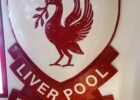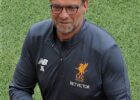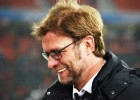Last week I began my reflective series looking back at Jürgen Klopp’s time in charge of Liverpool so far. I started in the most obvious place, which was his first season at the club. We now move on to his first full season in charge at Anfield, which in some ways was a bit of a disappointment compared to the campaign that preceded it. The 2015-2016 season boasted a League Cup final in the middle of it and ended with the Europa League final, but disappointment in both meant that we had no European football to look forward to in this campaign. What it did mean, though, was that the manager could concentrate on working with his squad and figuring out the weaknesses within it. Here’s how it looked when the season got underway:
- Simon Mignolet
- Loris Karius
- Nathaniel Clyne
- Dejan Lovren
- Joe Gomez
- Ragnar Klavan
- Alberto Moreno
- Joel Matip
- Trent Alexander-Arnold
- James Milner
- Philippe Coutinho
- Gini Wijnaldum
- Jordan Henderson
- Adam Lallana
- Lucas Leiva
- Emre Can
- Roberto Firmino
- Daniel Sturridge
- Sadio Mané
- Divock Origi
- Danny Ings
- Ben Woodburn
That’s without even including squad players like Alex Manninger and youth players such as Marko Grujić and Ovie Ejaria. Matip, Karius, Mané, Klavan and Wijnaldum were all new arrivals, whilst sixteen players left the club. That included Christian Benteke, Martin Skrtel and Kolo Touré. Whatever we might all think about those players now, at the time they had plenty of experience and none of us really knew what the future would hold. Loris Karius arrived with a great amount of hype, having been voted the second-best goalkeeper in the Bundesliga behind Manuel Neuer, but it was Mignolet who continued to start in goal when the campaign got underway. How did the rest of the season go? What were the highs and lows? I’ve had a look back.
Getting Into The Klopp Groove
It’s easy to forget now, given that we’ve spent the past two seasons watching Liverpool win matches in every type of way imaginable, but it took time for Jürgen Klopp to get his methods across to the players. Yes, we all remember that first game against Tottenham when Adam Lallana fell into the manager’s arms after being substituted, having run himself into the ground to initiate the press, but the team was constantly developing. Even pre-season had been punctuated by matches that varied wildly when it came score lines. A 4-0 loss to Mainz on the seventh of August came the day after a 4-0 win over Barcelona, for example. Sadio Mané burst onto the scene with a brilliant solo goal against Arsenal to put us 4-1 up in a match that we eventually scraped to a 4-3 victory in once the Premier League got underway, preceding a 2-0 loss to Burnley. We’d go on to lose another five times, with all of the defeats coming against ‘poorer’ teams.
Screamers, incredible counters and late winners… 😱
We take a look back at Mane’s first 5️⃣0️⃣ @PremierLeague goals 😎🔥 pic.twitter.com/xYAqN56mji
— Liverpool FC (at 🏠) (@LFC) March 18, 2020
The fact that he was a former defender meant that many believed that Jürgen Klopp would want to make us tighter at the back, but a refusal to realise that the likes of Dejan Lovren and Simon Mignolet would always put you in trouble sooner or later meant that we conceded forty-two times in the league. Given that some of the goals were scored in results such as the 4-3 loss to Bournemouth and the 3-2 defeat at home to Swansea, it’s not even as if we were only conceding to brilliant teams. We only managed twelve clean sheets, so the need to tighten up at the back was glaringly obvious. Remarkably, it would take Klopp another full season to realise the floor that was Simon Mignolet and he still hasn’t quite accepted that Dejan Lovren will never learn his lesson. There was far more green than red on the board at the campaign’s conclusion, however, so the manager will have been pleased overall with what he got from his team.
Champions League Qualification Was Vital
Jürgen Klopp’s relationship with the FA Cup has always been somewhat strained, so I don’t think anyone was shocked to see us exit in the fourth round. Even that took a replay against Plymouth Argyle after a 0-0 draw at Anfield. It was a different story in the League Cup, which the manager still enjoyed trying to win at the early part of his Anfield career. We should really have set up a final against Manchester United, too, but a disappointing 2-0 aggregate loss to Southampton put paid to that. As the season progressed, everyone’s attention was on the Premier League and whether or not we’d be able to creep into the top four. Champions League qualification was paramount for the Reds, with the need to get into Europe’s top competition evident both in terms of our ability to bring in new players and also to show progress under the German. Again, it’s difficult to imagine now but there were plenty who were still unconvinced by him.
Jurgen Klopp on Ranieri’s sack “it’s not only in football, there’s a few strange decisions in 16/17..Brexit, Trump and Ranieri”
— Tonte (@tontebriggs) February 24, 2017
The 4-3 win over Arsenal on the opening day of the season felt important at the time, but it would prove to be vital come the end of the campaign. When all teams had played their games and the dust settled, we finished one point ahead of the Gunners and in those all-important Champions League places. We didn’t know it at the time, but it would give us the cachet to go on to buy one of the best goal scorers in the club’s history in Mohamed Salah and it would also prove to be enough of a reason for Virgil van Dijk to choose Anfield over The Etihad; two of the most important signings of the modern era. The combination of the manager getting to both know his squad and also impart his methods to them was the building blocks of everything that’s come since. If we hadn’t finished in the top four then who knows where the club would be now? Certainly not in as healthy a position as it is, with more to come the following year….



